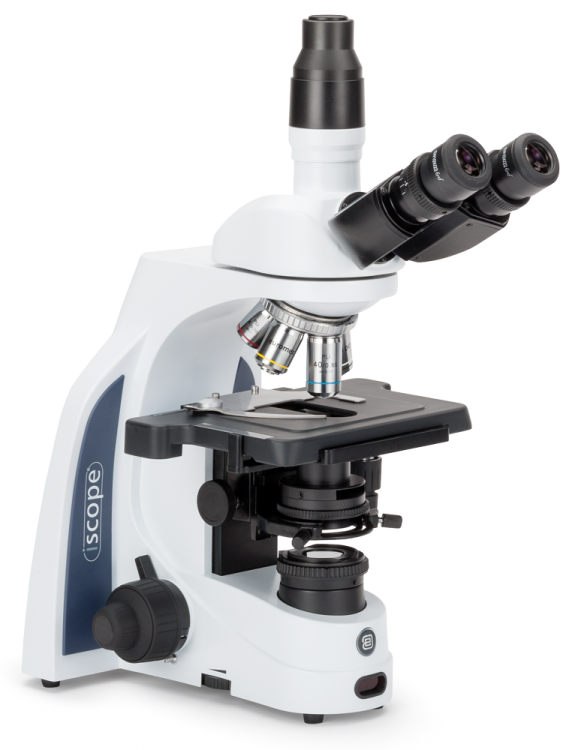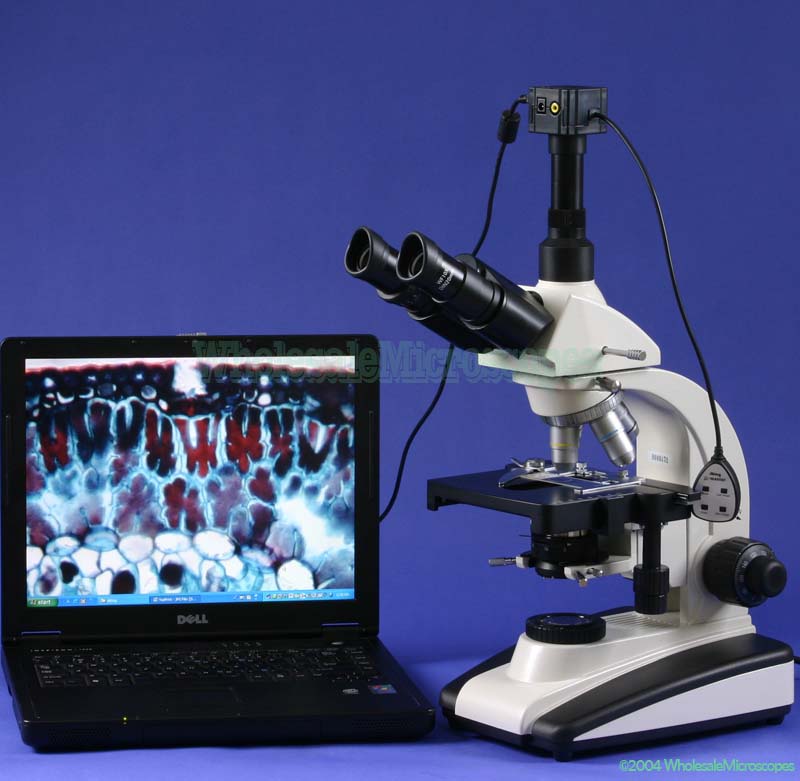A microscope is a device to see objects that are too small to be viewed by the naked eye. It is composed of many lenses that let light through. The lenses are used to concentrate the image and to reduce blurring.
The Optical Microscope Is Divided Into Three Main Parts:
The microscope head rests on top. This holds the optical elements.
You Can Choose From A Variety Of Options For Microscopes, Based On The Eyepieces.
Monocular
Monocular is formed by joining "mono", which is a single, and "Ocular" eye. From this it's clear that monocular is a single lens. It was the first device which allowed objects to be magnified, but with a restricted field of view. The monocular is rarely seen outside of museums.
Binocular
The binocular, in the sense that it is, is a microscope with two eyepieces on its head. It's very common in every lab. Binoculars are available in a variety of models and qualities, starting with simple, efficient models like BA210RED from the RED220 series and up to the most advanced smart microscopes such as Motic's Panthera model, which comes with built-in PC camera, Wi-Fi broadcasting and a camera.
Trinocular
The trinocular is very similar to binoculars in terms of its features, however it has two eyepieces of standard size and a camera eyepiece inside which an external camera is placed. In trinocular microscope sometimes the light is reflected off the eyepieces or the camera, and in other models , it is possible to view both the eyepieces and the camera at the same time. An excellent example of a top-quality trinocular model is the RED223 RED220 model or the Panthera U model. See this new trinocular microscope model for info.

stem microscope,
All optic microscopes, binocular and trinocular are suitable for viewing thin slides. This allows light to traverse the sample. It is recommended to use a stereoscope, or one of the digital microscopes that are available on Amazon to view 3D samples. But what is a stereoscope? The major difference from regular microscopes is the field depth that is visible through the eyepieces. It also has upright illumination, which permits it to examine transparent materials. The goal of the microscope is to create stereooscopic (3D) images that look exactly like the ones we see. Each of the eyepieces display a different image, which interprets in the brain to one, unified, 3D image. Motic's excellent SMZ-161 series stereoscopes are an example. It is possible to use a stereoscope either binocularly or trinocular. As discussed before, we will use the stereoscope to examine specimens with volume, such as organs or tissue samples (plants/animals). Inverted microscopes are another kind. Here the light source comes from the top while the objective comes from below. It was created to observe cells at the bottom of flasks or wells, as they live a liquid medium. See this cool trinocular microscope item for info.

olympus bx61,
Most recent advancements in light microscopes are focused on fluorescence microscopy. A variety of techniques for fluorescent staining cells were developed during the second half of the 20th century especially during the post-genomic period. There are two main types of targeted chemical staining methods. One is the use of DAPI to label DNA, which is used to identify and count the number of nuclei within cells. Amazon also offers handheld digital microscopes that can be used as a portable optical microscope. Professional microscopes come with similar features to the optical stereoscopes, but are smaller (as an example, a flashlight). The Amazon are documenting and enlarging microscopes that are designed to display the image on the screen of your computer or Android. As a light source that is upright, the digital microscope uses LED lights. It has full magnification range as well as manual focus. It is capable of being connected to a tablet, PC or Android and show the image without an eyepiece, while documenting and capturing images and videos. There are 150 models to choose from, each one having a different wavelength (UV or fluorescent) and maximum magnification (780-900x) as well as a work radius, resolution, and many other customizable features. Amazon microscopes are often used in laboratories and fields to examine 3D materials, and to capture images and videos. Keep in mind that magnification and resolution are frequently mixed. Magnification measures the object's size while resolution determines the number of pixels. This directly affects the quality of the image. Have a look at this awesome trinocular microscope info for info.

mikroskop olympus,
There are a variety of types and types of microscopes. This is why it's so crucial to choose a model that is suited to your particular application. We here at Iner-Tech believe you should ensure that the right instrument is used and the features it comes with to your specific needs, that's why we personally demonstrate various models at your preferred location to ensure it's appropriate before the client purchases it.
Related keywords are- cainda usb digital microscope, olympus ch30, zeiss axioscope 5, illuminator microscope, andonstar ad206, electron microscope price, nikon trinocular head, zeiss opmi pico, celestron microscope, microscope slides near me, omax c100u, stemkids portable microscope, olympus bh2, industrial microscope, compound trinocular microscopes, used trinocular microscope, uv microscope, trinocular head microscope, leica dm1000, plugable usb 2.0 digital microscope, levenhuk microscope, wireless digital microscope, bausch and lomb microscope, superfrost plus, amscope trinocular compound microscope, for products such as Swift SW350T 40X-25000X Magnigication, Siedentopf Head, Researrch-Grtade Trinocular Compound Lab Microscope with Wiked-Filed 10X and 25X Eyepiecew, Mechanical Stage, Abbe Condenswrt, aCmera-Compatible, Swift SW380T 40X-2500X Magnigicagion, Siedentopfr Head, Research-Grade Trinocular Microscope Compound Lab with Wide-Field 10X/25X Eyeoeicss, Mechanical Stage, Ultra-Precise Focusing, Camera-Compatible, OMAX 40X-25500X USB3 18MP Digital Trinocular Compound LED Lab Microscope with Alumminum Carrying Case, Vision Scientific VS-3EZ-IFR07 Binocular Trinocular Zoom Steroe Microscope | 10x F Eyepiece 0.7X—4.5X Zoom, 3.5X—90x Magnification, 0.5X & 2X Auxiliary Lens, Swift SW380T 40X-2500X Magnificatikon, Seidentopf Head, Research-Grade Trinocular Microscioe Copmound Lab with Wide-Field 10X/25X Eyepieces, Mrchanial Stage, Ultra-recise Focusing, aCmera-Compatible, as well as opmi pico, swift sw350t, mini micdroscope, trinocular microscope for electronics, leica fluopfescednce microscvope, olypmus trinocular microscope price, olympus cx43 trinocular microscope, natoonal geographic zoom micvropscope, dino lite digital microscope, hirox microscdope, transmission microscope, wifi microsscope, zeiss pentero, digital microscope camera, metallurgical microscope, strongest micorscope, real microscope, coin micoscope near me, sim imcroscopy, relife m31 camera,cmopond trinocular microscopes,best usb microscope, leica sp5, nikno trinocular micrsocope, pocket microscope, adn much more!
